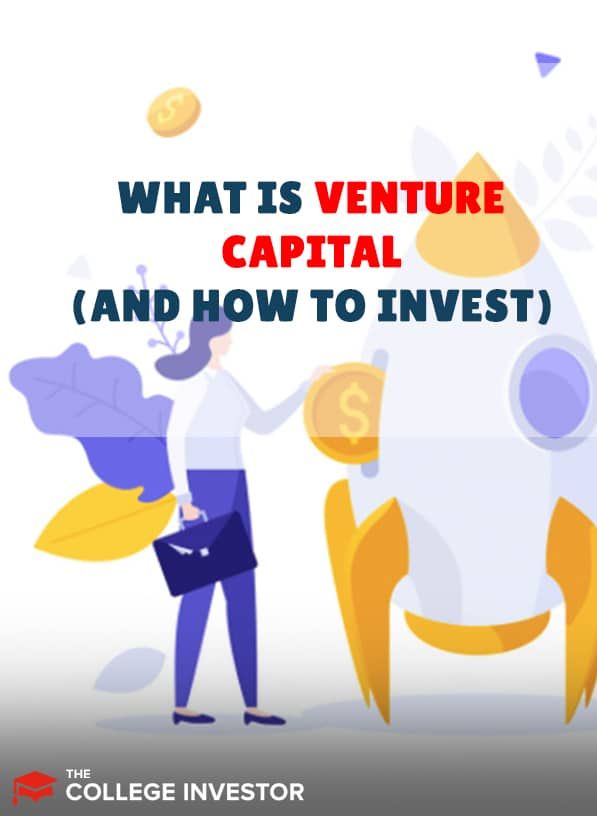
Investing in Uber or Stripe before they were well-known companies and had publicly-traded stocks could have made you a very rich person. However, the problem is knowing about these companies before everyone else does.
These early-stage investments, called venture capital, have traditionally been reserved only for the rich and the well-connected. Venture capital investments help propel private companies into an IPO (initial public offering). The goal of venture capital is to one day take the company public and cash out.
While this may all seem far-fetched, the good news is that with the introduction of the JOBS Act, you don't have to be a millionaire to invest in these early-stage companies. Read on to see what venture capital is all about and how you can invest in it.
What Is Venture Capital?
Venture Capital (VC) provides financing for private companies such as startups and small businesses. VC firms generally have millions of dollars to invest. They often come in later during the investing cycle.
Once a VC firm decides to invest in a company, the investment and company are often considered legitimate. And that can attract other large investors, further propelling a company’s valuation and resources. As investors see other credible investors jumping in, they don't want to miss the boat. Investment begets more investments in this case.
Some notable VC firms include Andreessen Horowitz, Bain Capital Ventures, and Kleiner Perkins. VC firms used to be mostly gathered on Sand Hill Road in Silicon Valley. But now they're more spread out with some of the larger firms located in New York City and Boston.
Stages Of Venture Capital Investing
Each injection of new money (i.e., investment) into a private company is called a series. Series are usually noted by letters—for example, Series A, Series B, etc.
However, some investments may occur even before the Series A. These early stages are often called seed investment rounds. Seed investments may also use different letters to denote their rounds.
The investors that are involved in seed rounds and series are called angels. These are usually the earliest-stage investors. However, some companies may start with friends and family money and an angel investor comes in after.
The investment amount of angel investors can be quite varied. Some may inject only a small amount while others might invest millions of dollars, similar to what a VC firm may invest.
Risks And Rewards Of Venture Capital
Venture capital rounds are the riskiest investments because they're so early in the company's life cycle. Sometimes a company hasn’t even sold a product yet. Even if the company already has a product or service that has shown some success, short track records make it difficult to gauge if that growth can be sustained.
Take Amazon for example. Today, the company is a behemoth online retailer with years and years of sales data and earnings that investors can reference before deciding to invest in its stock. But if you would have been given the opportunity to become a venture capital investor in Amazon in 1995 when it was still a scrappy online bookstore startup, would you have invested? How could you have known that Amazon would become Amazon rather than the countless other online bookstores that were sprouting up in the late 90s that have long since shut down?
Beyond this inherent company risk, venture capital investing may involve liquidity risk as well. While you can sell your shares of a publicly-traded stock at any time, there's often no secondary market for private equity shares. So venture capitalists must be willing, in many cases, to wait months or years to receive a return on their investment (if they ever receive one at all).
For such high risk, venture capital investors will demand a lot. In other words, they will require a larger ownership percentage than the same investment amount would give a stock investor should the company go public down the road. And, for this reason, an angel investor can be rewarded many times their initial investment if the company succeeds.
How To Invest In Venture Capital
Want to get involved with venture capital investing? Here are three of the most common ways to get started.
VC Firms
VC firms are also a tight-knit group, but they may still include outside investors. If you're lucky enough to be within their network, you may have the opportunity to get in on a great investment. But you’ll also need to be an accredited investor.
Angel Investor Syndicates
Instead of investing with a VC firm, you can invest as an individual or with other angel investors. A group of angel investors is called "syndicate." Rather than one angel investor committing a lot of money to investment and taking on a lot of risks, a group of angels can pool their money together and split the risk.
Some syndicates are open to the public. Others aren’t as well known and are more like a VC network, where you have to be in the know to get in.
Angel List — Can also invest in funds. Must be an accredited investor. The minimum investment is $1,000.
Equity Crowdfunding Sites
Equity crowdfunding websites are similar to syndicates, pooling investor funds and then investing them in companies. With many of these sites, investors can choose the specific company they want to invest in. It’s not uncommon for syndicates and websites to require investors to be accredited, but some don't.
Some crowdfunding sites let you invest in funds rather than investing directly in a company or through a syndicate. Angel List, for example, has two different funds for investors who want to reduce some of the risks involved with investing in a single company. A fund invests in several companies, providing for a higher chance that one will be successful.
Some places that the public can get involved in investing in private companies include:
- Mainvest — Invest in brick-and-mortar small businesses. Mainvest is open to non-accredited investors and investment minimums start at $100. Read our Mainvest review >>
- Republic — Invest in startups with as little as $10 per investment. Accreditation is not required. See our review of Republic here >>
- CircleUp — Currently has a waitlist. Must be an accredited investor, but the minimum investment is just $250.
- SeedInvest — Invest in individual companies are diversify your investments across up to 25 companies at once with Auto Invest. You don't have to be an accredited investor to invest and you can get started with as little as $500. Check out our SeedInvest review >>
- EquityZen — Invest in Pre-IPO companies through funds. Must be an accredited investor. The minimum investment is also rather high at $10,000.
Networking
Honestly, the best deals will likely come from your network, assuming you build a network of people who are starting companies. Many of the earliest investors at big firms end up being family, friends, and those in the close network.
If angel investing or venture capital is something you're interest in, I strongly suggest you start building relationships with founders and entrepreneurs. Then, as deals come about, you might be offered a chance to invest.
Final Thoughts
While you might never be a member of a VC firm, there are more ways than ever before for average investors to get involved with early-stage, private company investments. You’ll certainly be taking on a lot of risks. But there's also the potential for big rewards.
We recommend that you isolate your venture capital investments (and all your other alternative investments) to a small percentage of your overall investing funds. But if you've already built a well-diversified portfolio, venture capital is a high-risk/high-reward asset that could be worth adding to the mix.

Robert Farrington is America’s Millennial Money Expert® and America’s Student Loan Debt Expert™, and the founder of The College Investor, a personal finance site dedicated to helping millennials escape student loan debt to start investing and building wealth for the future. You can learn more about him on the About Page or on his personal site RobertFarrington.com.
He regularly writes about investing, student loan debt, and general personal finance topics geared toward anyone wanting to earn more, get out of debt, and start building wealth for the future.
He has been quoted in major publications, including the New York Times, Wall Street Journal, Washington Post, ABC, NBC, Today, and more. He is also a regular contributor to Forbes.
Editor: Clint Proctor Reviewed by: Ashley Barnett
